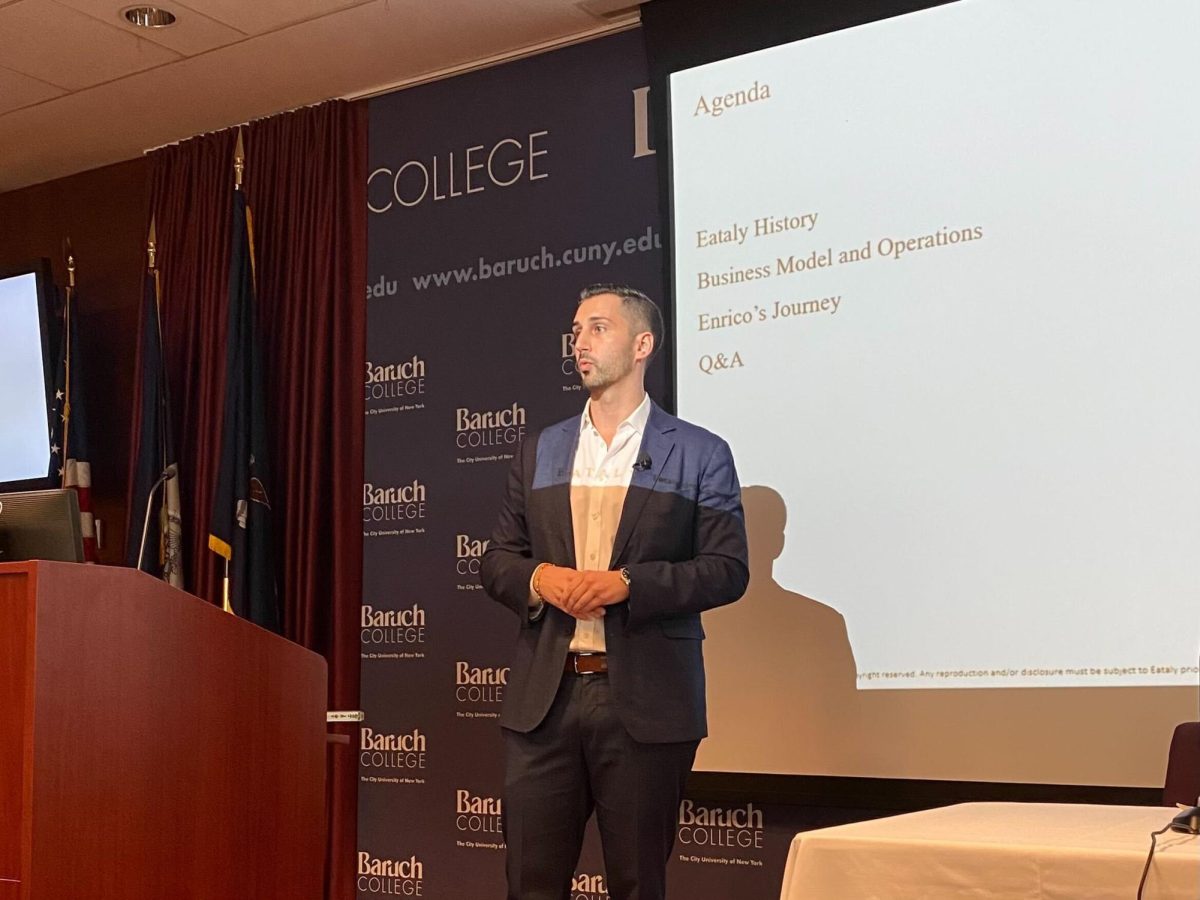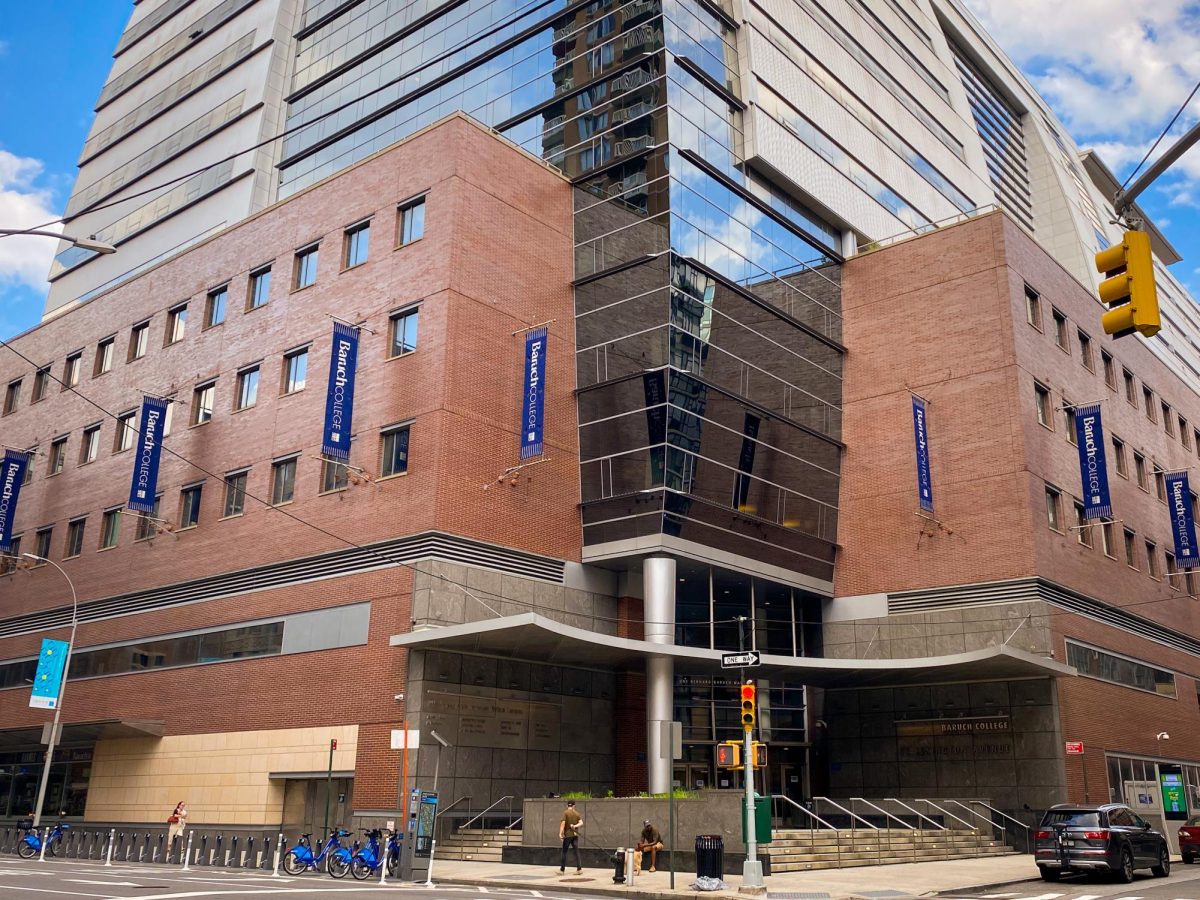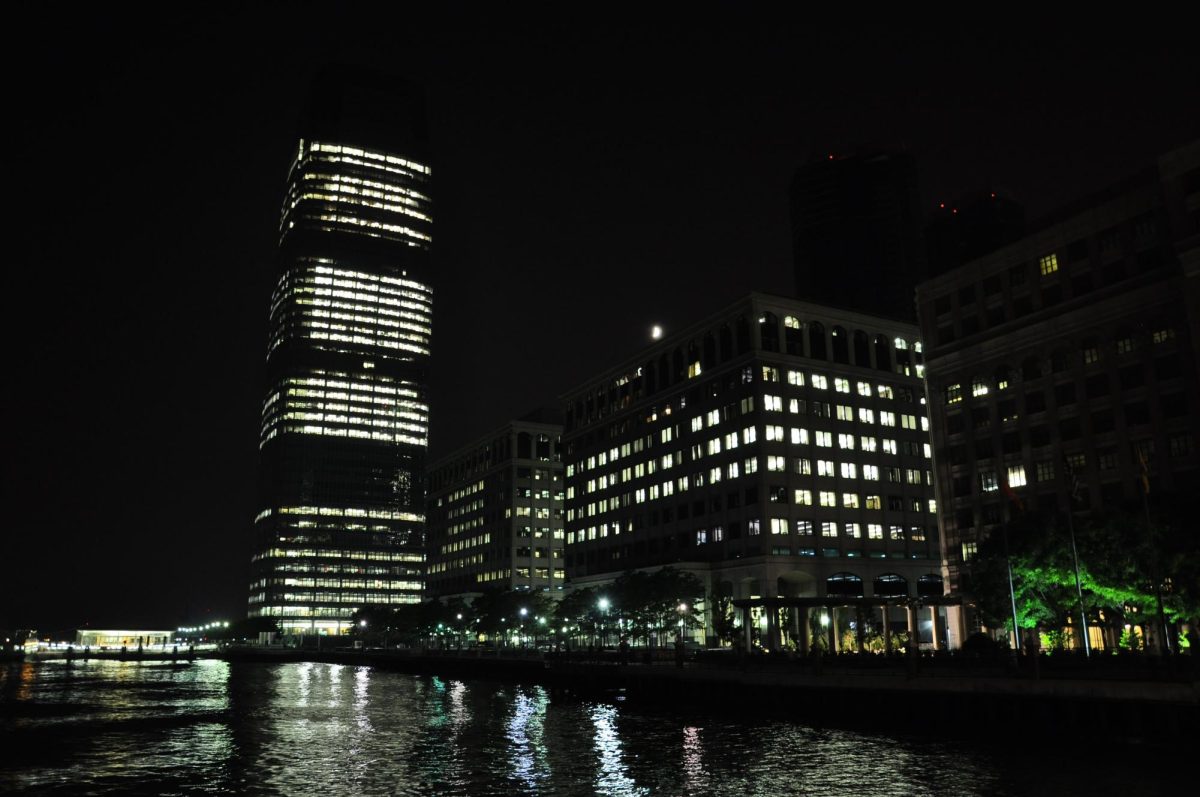Enrico Prodi, the director of operations at Eataly’s flagship store in Flatiron, visited Baruch College for the “Mitsui Lunch-Time Forum,” sharing the company’s vision and his personal journey from a small town in Italy to New York’s busiest area. Before assuming the position, Prodi started his career in accounting and insurance in Northeast Italy.
“I’ve learned how hard it is to adapt from an insurance background, from P&Ls to inventories and food cost,” Prodi said.
He went on to learn about the product and acknowledged the art behind making quality food and providing good service. He described the responsibilities chefs had, depicting them as “artists” who make the product every day.
Prodi has worked at various Eataly locations, including Rome, Los Angeles, Boston, London, and eventually New York. The director of operations described how each transition deepened his understanding of the business, which he attributed to the diversity of the populations and their demands in these areas.
During the pandemic, he worked as a cashier at the LA store, which gave him valuable insights into employee operations and management. He also had to adapt their online business strategy in Boston after 2020 and take a different approach to meet workforce demands in London.
Now running the Flatiron location, which is one of 52 locations of the food chain, Prodi refers to it as “a place of gathering” for those who love quality food and drinks, where customers could grab coffee, buy groceries, dine in, and learn how to cook Italian food. The vision continues today. Prodi said they “have one store with different restaurants and different strategies according to marketing and according to finance,” offering guests a variety of options to shop from.
Prodi added that “the beauty of this company is gathering this expertise in one environment,” which brings positive financial benefits. This approach extends market reach and alleviates pressure on departments with lower profit margins. Another important component of Eataly’s success is strong operational management, Prodi said.
“You can have the strongest brand, but at the end of the day if its operations are not linked to the brand, to the idea behind, you are not going to survive,” he said. He went on to explain that the stronger the operations, the more they can connect with different audiences.
He provided examples of how poor service can drive customers away. For example, if production isn’t efficient and you can’t brew enough coffee per day, you risk losing customers.
“Eataly is not just a hospitality business; it is an experience business,” Prodi said. It is comprised of four business units: full-service restaurants, quick service, a retail market, and a cooking school. To develop the right strategy for a business like that, he said, one has to first observe and understand the environment, then feel the operations and the competition to make the right decision.
At the end of the forum, he shared a more personal outlook on life and career advancement. “If someone would have told me a couple of years ago that I would be on this path, I wouldn’t believe it; I would say you are crazy,” he said. “Everyone has their own path. Sometimes we have to take a risk and do something different.”
Categories:
Eataly Flatiron director of operations speaks at Baruch Mitsui Lunch Forum
October 28, 2024
More to Discover








